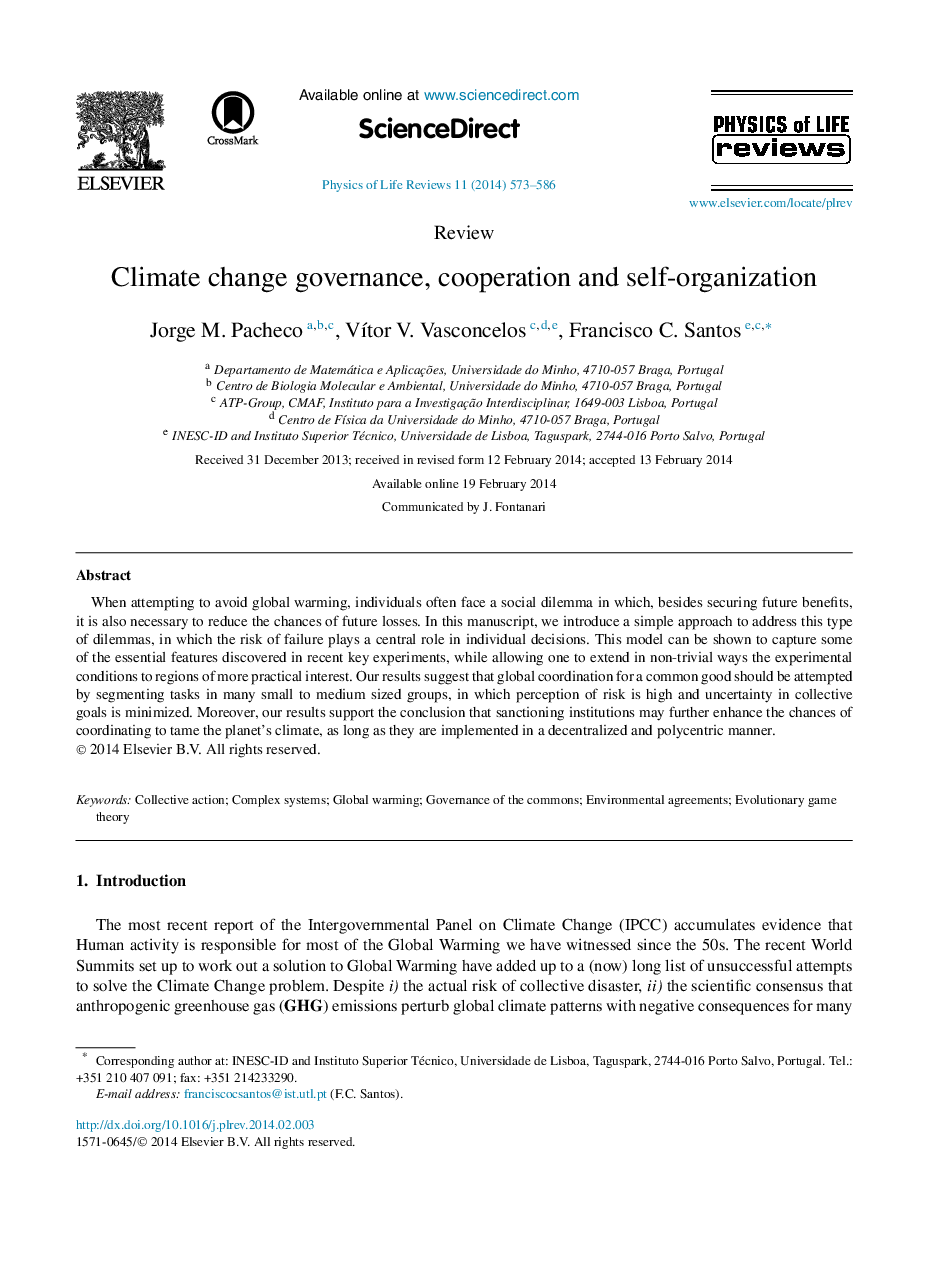| Article ID | Journal | Published Year | Pages | File Type |
|---|---|---|---|---|
| 1868569 | Physics of Life Reviews | 2014 | 14 Pages |
•We model decision-making when individuals face global environmental problems.•We show that risk perception is a chief ingredient in cooperation dynamics.•Agreements should be tried in small groups and uncertainty in targets minimized.•Polycentric sanctioning institutions may further enhance collective action.•Our results suggest to “think globally and act locally”.
When attempting to avoid global warming, individuals often face a social dilemma in which, besides securing future benefits, it is also necessary to reduce the chances of future losses. In this manuscript, we introduce a simple approach to address this type of dilemmas, in which the risk of failure plays a central role in individual decisions. This model can be shown to capture some of the essential features discovered in recent key experiments, while allowing one to extend in non-trivial ways the experimental conditions to regions of more practical interest. Our results suggest that global coordination for a common good should be attempted by segmenting tasks in many small to medium sized groups, in which perception of risk is high and uncertainty in collective goals is minimized. Moreover, our results support the conclusion that sanctioning institutions may further enhance the chances of coordinating to tame the planet's climate, as long as they are implemented in a decentralized and polycentric manner.
